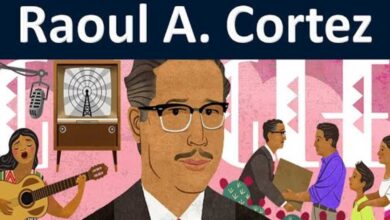
Plundering in the Apocalypse: Navigating the Abyss of Human Morality
As we ponder the hypothetical scenarios of an apocalyptic world, one recurring theme emerges prominently—plundering. The word itself conjures images of lawlessness, desperation, and the breakdown of societal norms. In this exploration, we delve into the concept of plundering in the apocalypse, examining its roots in human nature, the moral dilemmas it poses, and the potential consequences for the remnants of humanity trying to survive in a world unhinged.
Understanding Plundering in the Apocalypse
Plundering, in the context of an apocalyptic scenario, transcends mere theft. It encompasses a primal instinct triggered by the collapse of civilization, where individuals or groups exploit the chaos to seize resources for their own survival. The scarcity of necessities amplifies the intensity of these actions, driving people to extremes they might never have considered in a stable society.
Human Nature Unleashed
The apocalypse, whether triggered by a natural disaster, pandemic, or any other cataclysmic event, unravels the fabric of societal structure. In such dire circumstances, individuals are forced to confront their most primal instincts for survival. The veneer of civilization fades, revealing a raw and unbridled human nature that has been suppressed by societal norms.
The psychological impact of an apocalyptic event can lead to a sense of desperation that propels people toward plundering. The fear of death, the scarcity of resources, and the breakdown of social order can push individuals to prioritize self-preservation above all else. As survival instincts take precedence, moral boundaries become blurred, and the distinction between right and wrong becomes a luxury most cannot afford.
Moral Dilemmas in the Face of Extinction
Plundering in the apocalypse raises profound moral dilemmas that challenge our understanding of right and wrong. As individuals grapple with the need to secure their survival, ethical considerations often take a back seat. The clash between personal morality and the instinct for self-preservation creates a moral quagmire where individuals must make difficult choices with far-reaching consequences.
Is stealing food to feed one’s starving family an act of desperation or outright plundering? Is killing to protect one’s resources justified in a world where every morsel of sustenance is a precious commodity? These are the ethical questions that haunt survivors in an apocalyptic landscape where traditional moral frameworks are rendered obsolete.
The Erosion of Empathy
In the chaos of an apocalypse, the erosion of empathy becomes a stark reality. The struggle for survival can lead individuals to view others not as fellow human beings but as obstacles or threats. Plundering, in this context, becomes a means to an end, where the well-being of others is sacrificed for personal gain.
The breakdown of social bonds and the fraying of interpersonal connections contribute to this erosion of empathy. As individuals witness the suffering of those around them, the line between friend and foe blurs, and the once-universal moral imperative to treat others with compassion becomes a casualty of the harsh new reality.
Consequences of Plundering
While plundering may offer short-term gains in an apocalyptic world, the long-term consequences are profound and often devastating. The erosion of trust among survivors makes cooperation and collective efforts nearly impossible. The constant threat of violence and betrayal perpetuates a cycle of fear and mistrust, hindering any chance of rebuilding a semblance of societal order.
Furthermore, the moral toll of plundering leaves psychological scars that endure even as the physical wounds of the apocalypse heal. The survivors are left to grapple with the guilt, remorse, and trauma associated with their actions during the chaotic days of plundering.
The Hope for Redemption
Amidst the chaos and moral ambiguity, there remains a glimmer of hope for redemption. As survivors navigate the harsh landscape of the apocalypse, they must confront the consequences of their actions and strive to rebuild a moral framework that transcends the brutality of their recent past.
Acts of kindness, cooperation, and empathy become beacons of hope in a world clouded by the shadows of plundering. The resilience of the human spirit, even in the face of its darkest impulses, offers a ray of hope for the reconstruction of a more compassionate and ethical society.
Conclusion
Plundering in the apocalypse serves as a mirror reflecting the raw and untamed aspects of human nature when faced with the collapse of civilization. The moral dilemmas it poses force individuals to confront the very essence of their humanity. While the short-term gains may seem tempting, the long-term consequences of plundering are severe, perpetuating a cycle of violence, mistrust, and despair.
As we contemplate the hypothetical scenarios of an apocalyptic world, we are compelled to ask ourselves: How would we navigate the moral complexities of survival? Would we succumb to the allure of plundering, or would we strive for a higher moral ground, even in the face of unimaginable adversity? These questions challenge us to explore the depths of our own morality and consider what it truly means to be human in the midst of chaos.



